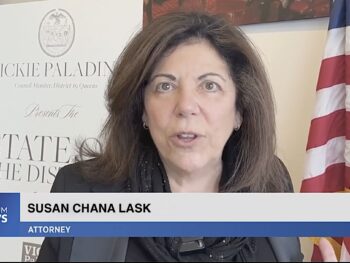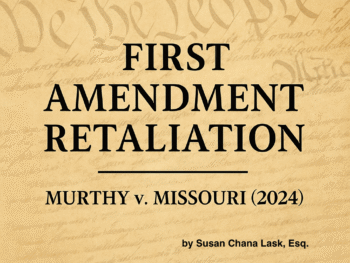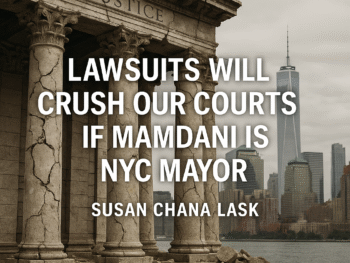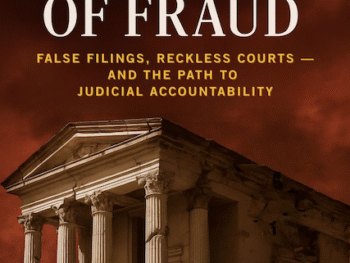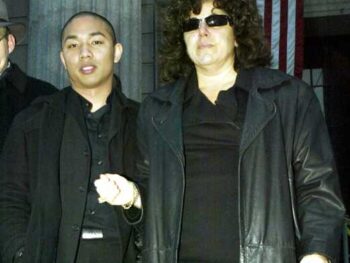An appeals procedure little known to appellate lawyers yet widely covered in Appellate Court cases. This appeal won our young client’s freedom from prison on trumped up charges. His gratitude was expressed in a thank you card: “To Susan, Thank you so much for all of your hard work to insure that justice was served. It was truly appreciated.”
Law Offices of
SUSAN CHANA LASK
853 Broadway, Suite 1516
New York, N.Y. 10003
(212) 358-5762
VIA FAX 518. XXX-XXX SENDING 3 PAGES, INCLUDING THIS PAGE
January 5, 2004
Don Selsky, Director of Special Housing
Special Housing Office, Bldg 2
1220 Washington Avenue
Albany, NY 12226
Re: DIN 02aXXXXX, XXXXX Smith
Dear Mr. Selsky:
This office represents the above-captioned inmate. This letter is a Supplementary Appeal1 before filing an Article 78 in an effort to avoid waste of judicial services as the issues are resolvable here.
UNDERLYING CASE
On October 3, 2003 the Commissioner affirmed the Time Allowance Committee’s report that XXXXXX Smith receive his good time credit for a January 6, 2004 release date. On November 16, 2003 Mr. Smith received a misbehavior report charging him with arson, smoking, flammable material and property in an unauthorized location. The charges arose from a fire in Mr. Smith’s trash can. Mr. Smith attended a November 20, 2003 hearing. The decision was a loss of 120 days good time. On November 20, 2003 Mr. Smith appealed based upon 7 NYCRR 203.5(a), 253.6(c) and 253.5(c)(2). On December 9, 2003 you reviewed the appeal and modified the decision to loss of 60 days good time.
ISSUES PRESENTED
1. Mr. Smith’ due process rights were violated as he was not afforded a full and fair hearing as it was a brief hearing, there was no corroborating testimony that Mr. Smith was guilty and witnesses were not called despite Mr. Smith’s information as to the real perpetrator.
2. Mr. Smith had the right to have witnesses present to support his defense.
3. The punishment of 60 days loss of good time credit is not within the regime of confinement expected for a prisoner in Mr. Smith’ case as well as is inconsistent with the hearing.
4. The disposition must be reversed as the hearing officer committed a procedural error by not writing down the reasons why witnesses were not called.
FACTS
On November 16, 2003 at about 6:05 p.m. Mr. Smith was in the yard. At about 6:30 p.m. He was called in by a Housing Officer and informed the trashcan in his room was on fire. Mr. Smith explained that access to the room is open as it is unlocked, that he was in the yard and not near the trashcan since about 6 p.m. and the person that started the fire was a light skinned black male, with cornrolls, about 27, who was in for a violation. Despite his explanations, the Housing Officer stated ” It doesn’t matter, we want you to handle this.”
A November 20, 2003 hearing was held. It was very brief; about 5 minutes. Mr. Smith explained that he was not present at the time of the fire and there was no way he could have done that if he was not there. The Hearing Officer asked how he pled. He said not guilty. He was asked to leave the room and when he was called back he was told they found him guilty. Mr. Smith told the Hearing Officer that he knew who started the fire in his room. The Hearing Officer refused to hear Mr. Smith evidence and never brought forth nor interviewed the alleged perpetrator.
THE LAW
Sections 253.5(a) and (c)(2) provide for the calling of witnesses. An inmate’s due process right to call witnesses on his behalf has been recognized in New York as a fundamental constitutional right, a denial of which requires expungement. See Matter of Barnes v. LeFevre, 69 N.Y.2d 649, 511 N.Y.S.2d 591 (1986); Matter of Afrika v. Selsky, 199A.D.2d 315, 605 N.Y.S.2d 101 (2d Dept. 1993); Matter of Maier v. Coughlin, 193 A.D.2d 1015, 598 N.Y.S.2d 118 (3d Dept. 1993); Matter of Codrington v. Mann, 174 A.D.2d 868, 571 N.Y.S.2d 160 (3d Dept. 1991); Matter of Torres v. Coughlin, 166 A.D.2d 793, 563 N.Y.S.2d 152 (3d Dept. 1990); Matter of Taylor v. Coughlin, 158 A.D.2d 881, 551 N.Y.S.2d 676 (3d Dept. 1990); Matter of Williams v. Coughlin, 145 A.D.2d 771, 535 N.Y.S.2d 499 (3d Dept. 1988); Matter of Santana v. Coughlin, 90 A.D.2d 862, 457 N.Y.S.2d 944 (3d Dept. 1982); Matter of Burke v. Coughlin, 97 A.D.2d 862, 469 N.Y.S.2d 240 (3d Dept. 1983); Matter of Tolden v. Coughlin, 90 A.D.2d 929, 457 N.Y.S.2d 942 (3d Dept. 1982).
The Housing Officer was informed by Mr. Smith that another person was responsible for the fire; however, this information was either not brought forward to or ignored by the Hearing Officer. Mr. Smith informed the hearing officer and he ignored that information. Upon information and belief, there is no evidence whatsoever that the hearing officer even attempted to question or make any inquiry of the perpetrator Mr. Smith informed was responsible for the fire. Undoubtedly, Mr. Smith was powerless to bring in the “witness” as the perpetrator certainly would not appear voluntarily to testify against himself. However, the hearing officer had the power to produce the “witness” at the hearing yet failed to do anything in face of this important evidence. Once Mr. Smith told the Housing Officer and the Hearing Officer about the actual perpetrator, then either one or both officers should have investigated that information rather than conducting a very brief hearing that ignored Mr. Smith’ information. At this point, we submit that the brevity of the hearing alone indicates that it was more concerned with getting it over with than it was with conducting a full and fair hearing.
The Appellate Division, Second Department held In the Matter of Silva v. Scully, 138 A.D.2d 717, 526 N.Y.S.2d 532 (2d Dept. 1988) that the hearing officer has a duty to interview the witnesses in order to determine a reason for their refusal to testify. By determining that petitioner was denied his right to call witnesses, and relying on Matter of Barnes v. LeFevre, 69 N.Y.2d 649, 511 N.Y.S.2d 591 (1986) to make that determination, the lower Courts correctly found that the hearing officer had a duty to ascertain a reason for petitioner’s witnesses’ alleged refusal to testify. In all of the cases where there has been a finding that the hearing officer failed to make an adequate inquiry into a witness’ alleged refusal to testify, courts have taken direction from this Court and expungement has been ordered. Barnes, supra; Silva, supra; Williams, supra; Matter of Codrington v. Mann, 174 A.D.2d 868, 571 N.Y.S.2d 160 (3d Dept. 1991); Matter of Maier v. Coughlin, 193 A.D.2d 1015, 598 N.Y.S.2d 118 (3d Dept. 1993); Afrika, supra.
As much as the law allows the hearing officer some discretion to allow certain witnesses, that discretion does not allow the denial of witnesses when there is absolutely no corroborating evidence from at least one witness. Afrika v. Selsky, 750 F.Supp. 595 (SDNY, 1990). In Afrika the court acknowledged the hearing officer’s discretion to deny witnesses when at least one witness to sufficiently corroborate the disciplinary charge existed. In Mr. Smith’ case, there were no such witnesses. Thus, the hearing disposition was based solely upon speculative evidence considering the facts that the rooms are open and anyone can walk inside at times as well as Mr. Smith was in the yard before and after the fire in his trashcan. Notably, no witness was produced to testify that he was smoking and he started the fire. There was absolutely no direct witness produced against Mr. Smith to justify the charges against him. Thus, without direct evidence and only a write up that there was a fire in his room which is unlocked and accessible by anyone and when he was not present, there was insufficient evidence to sustain charges against Mr. Smith. Moreso, the hearing held without a witness that Mr. Smith informed was necessary was unfair and procedurally defective.
We further submit upon information and belief also that Mr. Smith was not advised of his right to call witnesses. He did not receive proper notice by law of the denial of his right to call the alleged perpetrator as a witness. The statute provides in relevant part, “[I]f permission to call witness is denied, the hearing officer shall give the inmate a written statement stating the reasons for the denial, including the specific threat to institutional safety or correctional goals presented.” 7 N.Y.C.C.R. 254.5(a). Instead, Mr. Smith was summarily dismissed from the hearing in an expedited fashion when he asked to bring in the real perpetrator. No further information pursuant to 7 N.Y.C.C.R. 254.5(a) was provided to him.
Section 261.4(g) states that the Time Allowance Committee shall allow the inmate to comment upon and make any statements to its decision. Clearly this law exists as loss of good time encroaches an inmate’s freedom, which is valuable and a serious liberty interest if lost unjustly. Thus, an inmate’s subsequent commentary may be beneficial to bring the right result rather than displace punishment. This case is just such an instance that subsequent commentary is beneficial. Even if the hearing officer considered the hearing closed when Mr. Smith explained he knew who did it, it does not discount Mr. Smith’ right to a full and fair hearing to reveal the real violator, which simply could have been accomplished at a continued hearing when such important testimony was not heard at the initial hearing.
Finally, the punishment simply does not fit the evidence at the hearing. We submit that clearly for the hearing to result in a loss of 120 days good time in addition to lost privileges and a transfer to another facility considering Mr. Smith actual 18 month release date shows the hearing was completely distorted. You reviewed the record and decided that the original 120 days loss of good time was inconsistent with the nature of the offense and you dropped it to 60 days. If we examine this offense closer, even 60 days loss of good time is unjustified considering that the hearing was procedurally defective in numerous respects (as explained herein above) and was not based on corroborating witness evidence sufficient to hold him responsible for an “arson”. The fact that Mr. Smith time served was up January 6, 2004, which he was only in for about 18 months and to add 60 days to a short term release based on a defective hearing is unwarranted.
CONCLUSION
We respectfully request that you completely reverse the Superintendent’s Hearing , expunge this record, restore his good time and release Mr. Smith.
Very truly yours,
LAW OFFICES OF SUSAN CHANA LASK
/s Susan Chana Lask
SUSAN CHANA LASK
——————————————————————————–
1 In the Matter of Dawes v. Coughlin, Commisioner of the Dept of Correctional Services, 83 N.Y.2d 597, 634 N.E.2d 938, 612 N.Y.S.2d 337 (Ct. of Appeals, 1994)-reconsideration of prior determination allowed.

